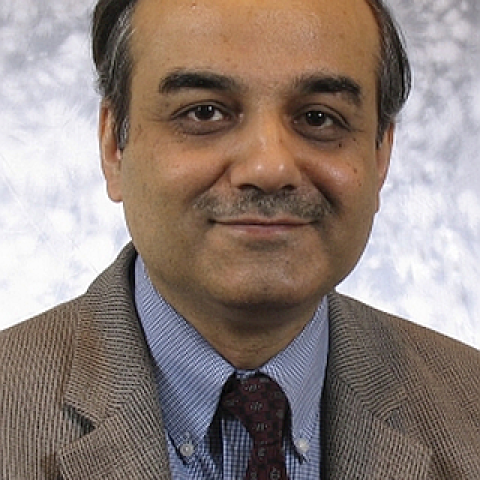Abhijit Chatterjee

Abhijit Chatterjee is a professor in the School of Electrical and Computer Engineering at Georgia Tech and a Fellow of the IEEE. He received his Ph.D in electrical and computer engineering from the University of Illinois at Urbana-Champaign in 1990. Chatterjee received the NSF Research Initiation Award in 1993 and the NSF CAREER Award in 1995. He has received six Best Paper Awards and three Best Paper Award nominations. His work on self-healing chips was featured as one of General Electric 's key technical achievements in 1992 and was cited by the Wall Street Journal. In 1995, he was named a Collaborating Partner in NASA's New Millennium project. In 1996, he received the Outstanding Faculty for Research Award from the Georgia Tech Packaging Research Center, and in 2000, he received the Outstanding Faculty for Technology Transfer Award, also given by the Packaging Research Center. In 2007, his group received the Margarida Jacome Award for work on VIZOR: Virtually Zero Margin Adaptive RF from the Berkeley Gigascale Research Center (GSRC). Chatterjee has authored over 400 papers in refereed journals and meetings and has 20 patents. He is a co-founder of Ardext Technologies Inc., a mixed-signal test solutions company and served as chairman and chief scientist from 2000-2002. He is currently directing research in mixed-signal/RF design and test funded by NSF, SRC, MARCO-DARPA, and industry, and he served as chair of the VLSI Technical Interest Group at Georgia Tech from 2010-2012. He co-leads the Samsung Center of Excellence in High-Speed Test, established at Georgia Tech in 2011.
VLSI and mixed-signal testingFault tolerant computingLow power circuit designComputer algorithmsDigital automation








